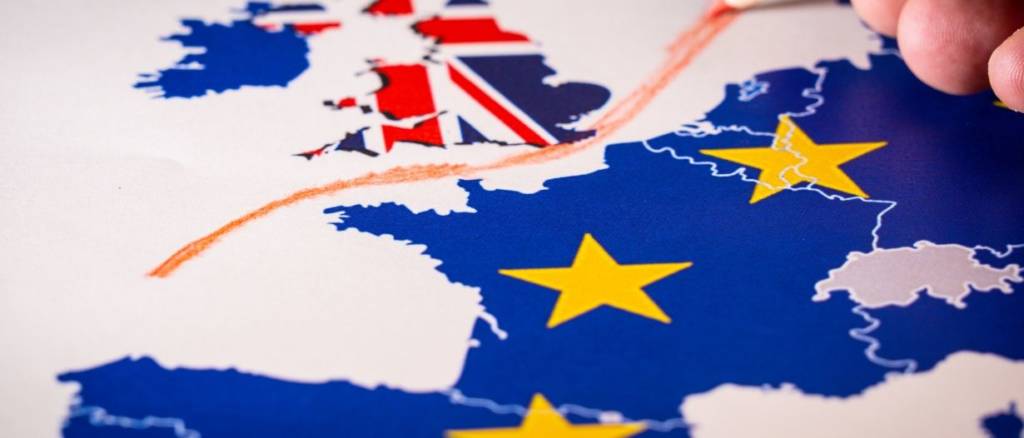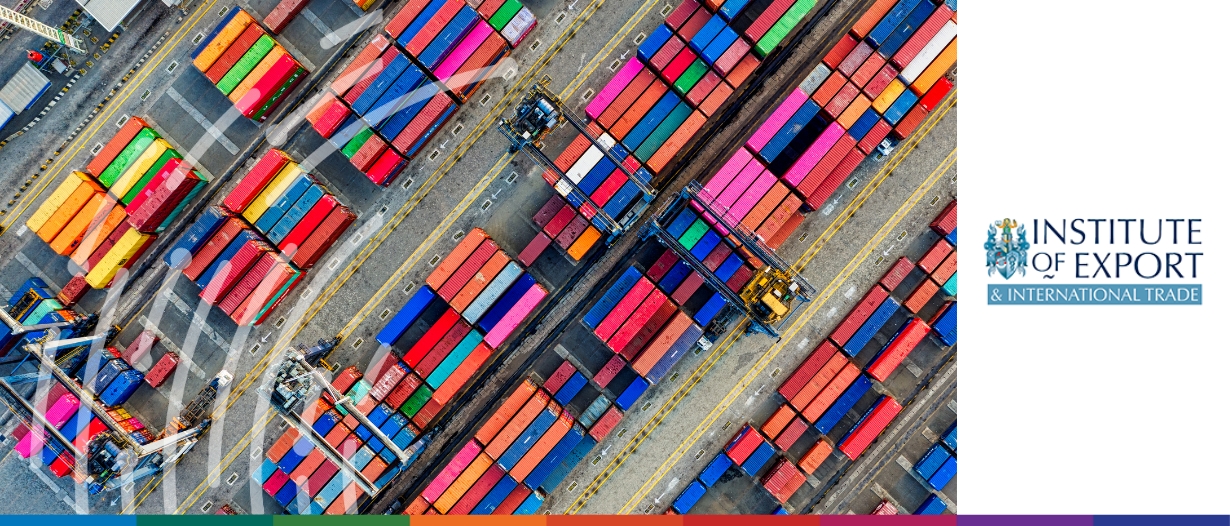We spoke to John Lucy, Manager, International Transport & Trade at the FTA about the action plans in the trade sector post-Brexit. With the UK and EU yet to reach an agreement on their future trading relationship, it is vital goods vehicle operators are as prepared as possible for a No Deal Brexit. In this scenario, new border procedures and haulier responsibilities will come into effect immediately. Hauliers must ensure they fully understand the new road haulage procedures, documentation requirements and responsibilities that will arise; otherwise, they risk their operations coming to a standstill.
Featuring: John Lucy, Manager, International Transport & Trade Procedures, Freight Transport Association (FTA)
Host: Deepesh Patel, Editor, Trade Finance Global
John, thank you very much for joining us on Trade Finance Talks TV. So if you could give us a quick introduction; who are you, where are you from and what do you do?
I’m John Lucy and I work for the Freight Transport Association. I am the manager of International Transport and Trade Procedures in the UK.
Great! So what is the Freight Transport Association? Who are your members?
The Freight Transport Association at the moment is the fourth largest business association in the UK. We represent the interests of the logistics industry. So we tend to sit in between the logistics providers and the buyers of logistics services within the UK and government departments. So we have a lot of interaction with the civil service with the DIT, with HMRC and DFT, etc. In terms of mitigating, at the moment a lot of time is spent in mitigating, Brexit related issues for the industry.
Great. So what are the top concerns for hauliers, vehicle operators and freight forwarders to keep Britain trading after it exits the EU?

Well, right now the big problem is that there’s almost too much information come out and it’s too late and in terms of preparation for the 31st of October. It’s not much more advanced than what it was with 31st of March earlier in the year over the last Brexit days. The actual capacity within the industry to do customs declarations overnight is just not there at the moment. And there is a long side us with the training for the hauliers and also for the traders, the customers of hauliers, the exporters. There’s seems to be an issue- huge apathy within the industry as a whole. Large per cent think Brexit is not going to happen. But obviously, this could be something in a few days away now really and you know, we spend a lot of time working with exporters and the logistics providers, in terms of raising awareness and in terms of what the people are going to be required to borders. But the big problem really is just the complete lack of infrastructure around the border areas, specifically around the ports areas. And it seems to be getting more complicated as certain ports will require slightly different variations of the procedures. And so obviously, it also needs to get this knowledge out to the EU 27 countries as well, because the vast majority of the vehicles coming to the UK are from the outside of the UK.
So what exactly is the FTA advising its members around Brexit?
We’re showing our members what the paperwork looks like, how it can be processed, what they need to be asking their customers for in terms of documentation, how will will actually be processed at the borders themselves from importing and exporting from the UK in the EU and obviously in return, illustrating the different types of customs documents that may be required depending on the type of cargo and also as well as a customers documentation in terms of Agri products once you leave in the EU. UK Agri products and Irish Agri products have to go into a border inspection post in the various ports around the EU, which again, this is a new requirement for the industry in 35 years now. So it’s the education that is huge with so much information that the whole logistics community and logistics providers need to understand, but also for the cost of themselves. The traders and the shippers.
Great. So let’s talk about EORI numbers. And some of our listeners may not have heard about what EORI numbers are, what are they, and what do businesses need to do to continue trading with the EU?
EORI is an Economic Operators Registration and Identification number. This is basically the first ID number that any businesses wish to trade internationally is required, is provided by HMRC. And right now I think every VAT registered business should have been provided within their own EORI number, on behalf of HMRC this number identifies that company and their import and export declarations. If you’re trading with multiple countries around Europe, you need an EORI number registered in all of those different countries as well. So it has just been quite a lagging uptake on the EORI numbers from the UK traders. But I think that’s why the HMRC released those 88,000 automatically about three weeks ago now to all VAT registered company. So it’s a first step of moving and actually be able to trade internationally after the BREXIT.

Great. And so EORI numbers are they for goods and services?
They are for goods only.
And at the same time, Incoterms are changing in 2020. What’s the relevance for new EU traders post Brexit?
Well, the vast majority of EU only traders haven’t even heard of the word in incoterms. So we’re finding now as a requirement for post Brexit trading as materialise, and we’re seeing that the risk factor for UK traders who we’re unaware of the correct incoterms or possibly the misuse of incoterms are quite high really, because the vast majority of the traders that we talked to, unless they’re already working with or trading with countries outside of Europe. They’re aware of the concept of it and the terminology and centre is this contrast responsibility and where the liabilities lie between the buyer and the seller, which on the policy depends on which incoterms you’re actually using contractually. The law is just as an early so they say there are 145,000 traders that estimated by HMRC, who are new to be trading with Europe and new to all these new procedures. That’s a huge amount of companies that need to understand and be trained and be aware of the risk to their business by having the incorrect incoterms of contract, or misunderstanding that the incoterms are being quoted by the sellers or their buyers, whichever.
And how can businesses engage with the FTA to be more prepared for some of these big changes that are coming up in the next few months?
We’re running a huge amounts of workshops, events. We’re working with the DFT. We’re rolling out workshops nationwide, we’re doing 20 a week, that’s ramping up to 40. We are right across the UK, Scotland and Ireland, in terms of raising awareness and training amongst the haulage community themselves and logistics providers. And we’re also starting to work with the traders, the financiers and logistic services. And all this is for those shipping companies to understand what they need to be providing to the logistics providers in order to help the flow of their goods across borders because obviously, the information originally needs to come from the shippers themselves or the experts themselves. This seems to be a little bit of a misunderstanding at the moment where they are assuming that the transport companies will be able to do these decorations, but they can’t be actual information. So details and needs come from experts or themselves, pass it on to logistics companies. And everybody starts needs to exchange this data between themselves in order to keep trade flowing with as least friction as possible across the borders.

Great. John, thank you very much for joining us on Trade Finance Talks TV.
Thank you very much.



























